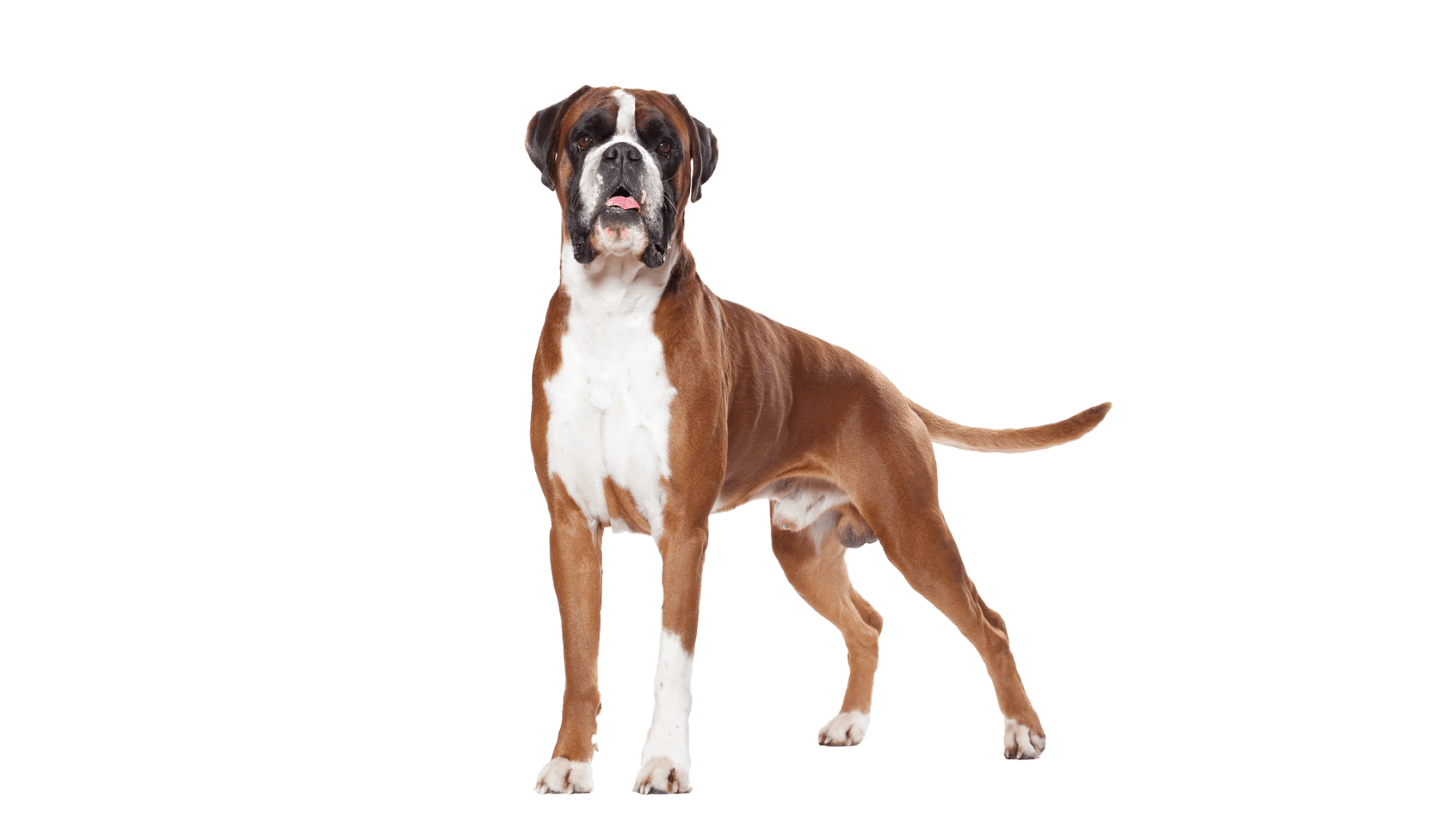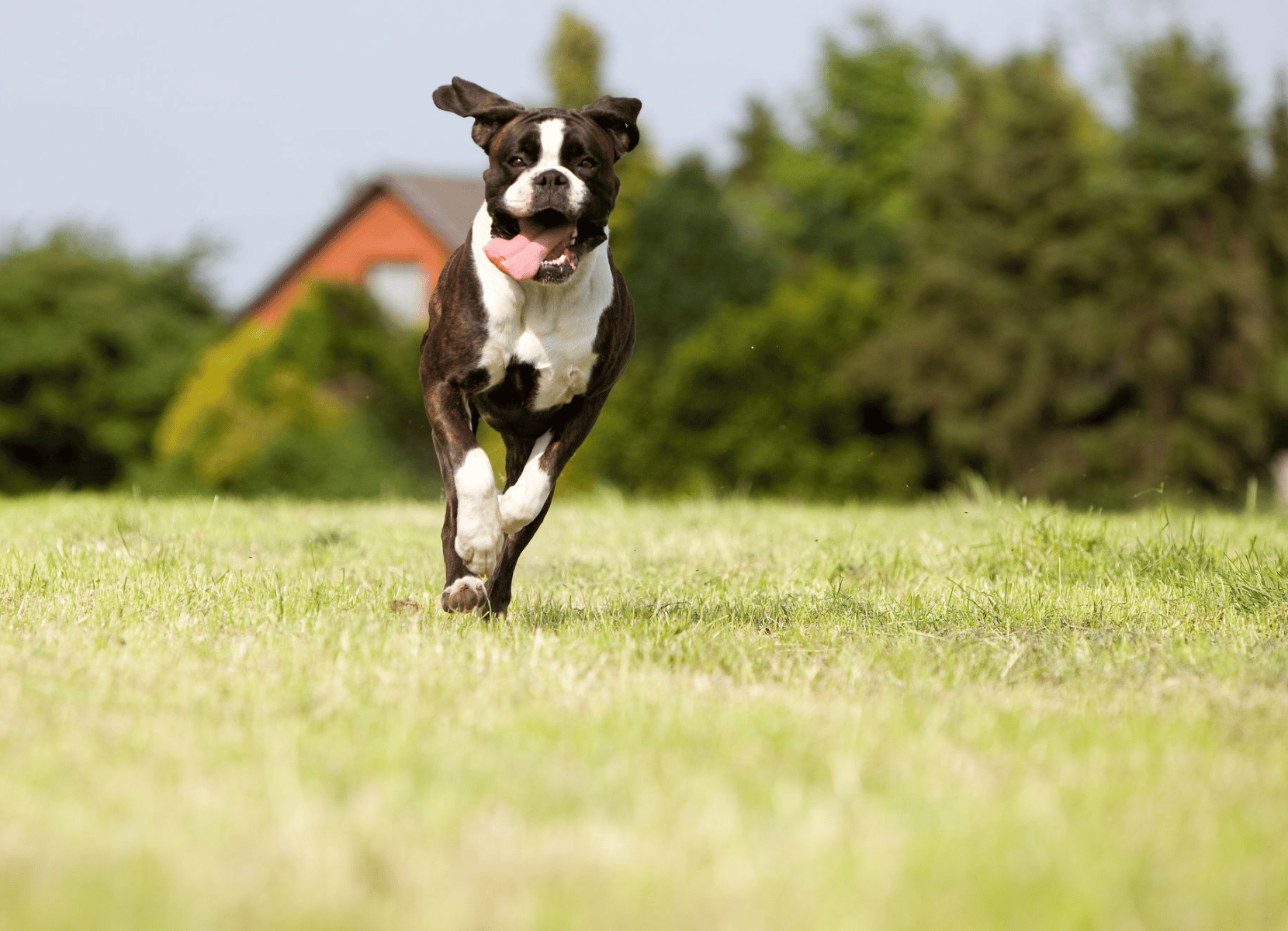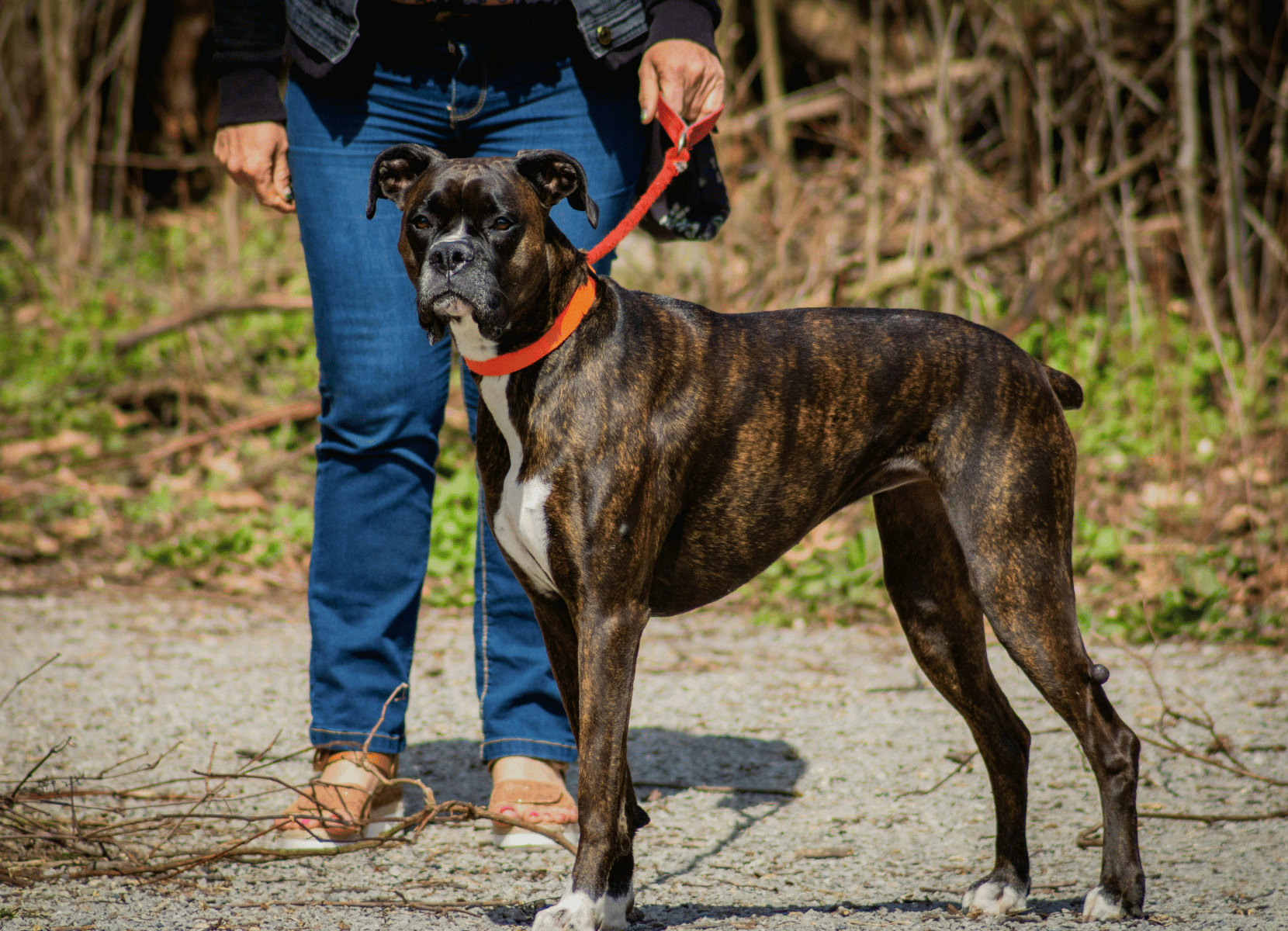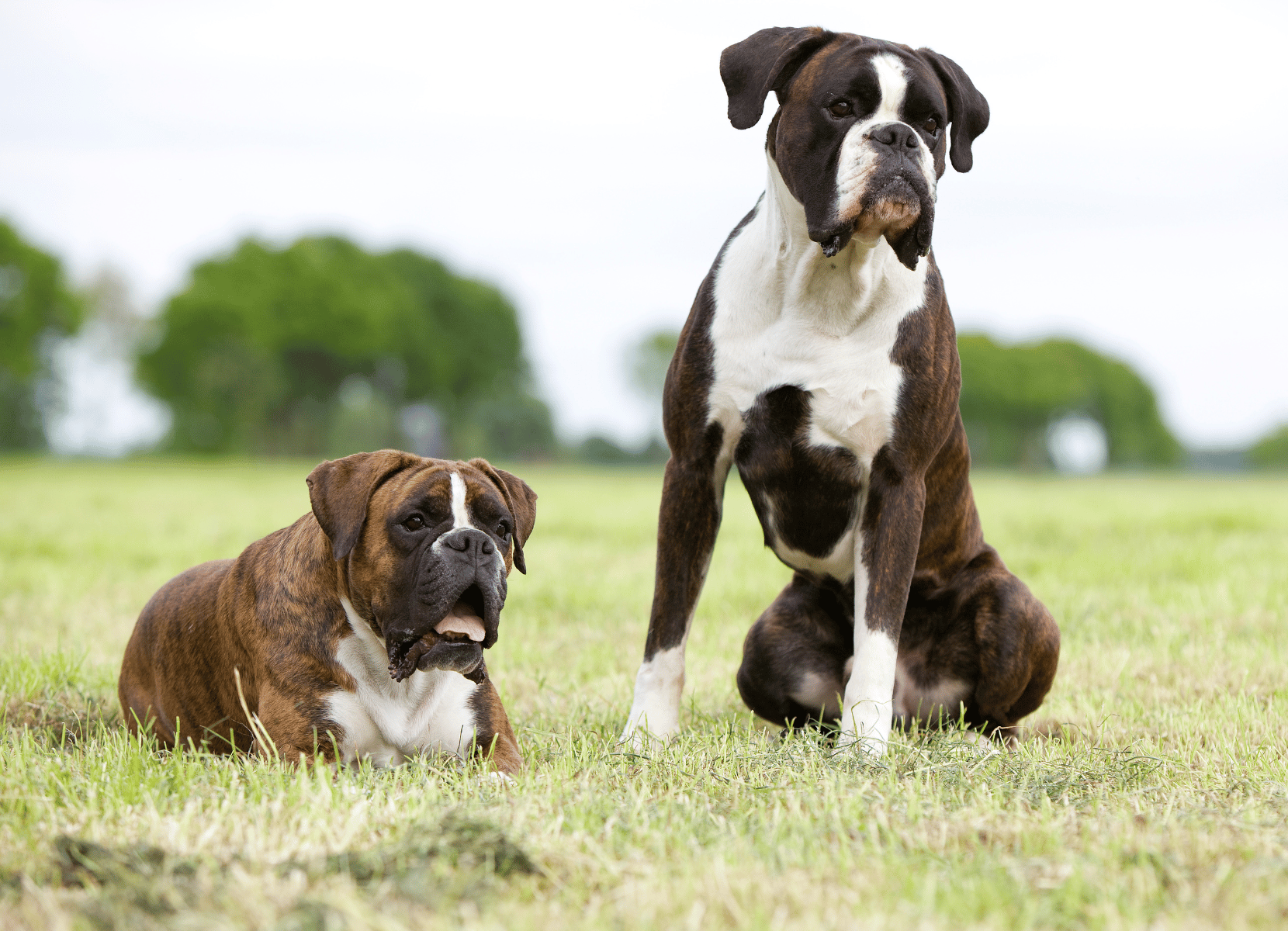Dog Breed
Boxer
Friendliness
Exercise Needs
Health Issues
Barking Tendencies
Grooming Needs
Shedding Level


Champion companion
The boxer is an energetic, intelligent, athletic, and loyal dog breed with a sweet and playful temperament that makes it an ideal companion. Boxers often get along very well with children and possess an instinct to protect the family, making them wonderful family dogs.
You can count on a boxer to let you know something’s up, but because they tend to like people, they don’t make the best guard dogs.
Caring for your Boxer
Nutrition
Choosing the right food
Every dog is unique. From the small, flat-faced Pug to the obesity-prone Labrador Retriever. ROYAL CANIN® Breed Health Nutrition is tailor-made to address the unique needs of pure breed dogs. These breed specific formulas benefit from the latest ROYAL CANIN® research on the selection of the best protein sources, unique nutrients and tailor-made kibbles.

Exercising your dog
The high energy level and athletic physique of the boxer means the breed needs a significant amount of exercise every day.
Make sure you provide the exercise needed to keep your boxer physically fit and mentally stimulated.
Invest in a good quality collar, harness and lead.
Take your boxer for a 30-45 minute walk at least twice a day.
Active games of tug and fetch will also help to keep your boxer busy.

Training your Boxer
Training is essential for the Boxer. They're so big and strong that they can accidentally hurt people by knocking them over if they don't learn to control their actions.
The Boxer's temperament plays a role in their trainability. They're happy and excitable, bouncy, and a bit of a mischief-maker. Getting them to take training seriously requires starting early and using firm, fair training methods and positive motivation in the form of praise, play, and food rewards.
Be consistent. Your Boxer will notice any time you let them get away with something, and they'll push to see what else he can get away with. Before you head to training class, settle them down a little with an energetic walk or play session. They'll focus better once they've worked off some excess energy.

Your dog's health
By recognising health problems in Boxers early you can seek advice and treatment from a veterinarian.
Reduce the risk of health problems by purchasing a puppy from a responsible breeder. Always inspect breeding facilities and breeding dogs, and never buy from a distant online seller.
Health Issues to watch out for:
Cancer
Aortic Stenosis
Dilated Cardiomyopathy
Deafness
Hip Dysplasia

Grooming your dog
Because boxers have very short hair coats, they have relatively simple grooming needs.
Most boxers need occasional bathing, every month unless they find something muddy or smelly to play in and a weekly brush to remove any loose hair. Although an active boxer may wear down its nails, keep an eye on them and trim any that get too long.
Brush their teeth at least two or three times a week to remove tartar buildup and the bacteria that lurk inside it.
Daily brushing is even better if you want to prevent gum disease and bad breath. Good quality dental toys and treats will also aid in supporting their dental health.
Key characteristics of Boxers


Boxer FAQs
If you’re thinking about bringing a Boxer into your life, you’re in the right place. These FAQs answer the most common questions about the breed’s behaviour, grooming, and living needs — perfect for both prospective and current Boxer owners.
Are Boxers suitable for apartment living?
Boxers can adjust to apartment life if they receive plenty of daily exercise and mental enrichment. Without enough stimulation, they may develop destructive behaviours or become restless.
Do Boxers bark a lot?
Boxers are not generally known for excessive barking. They’ll bark to alert you if something’s up, but they tend to be more expressive with their body language than their voice.
Are Boxers good with other pets?
Boxers can get along well with other pets, especially if they’ve been socialised from a young age. Supervised introductions and training help them build positive relationships, even in multi-pet households.
How intelligent are Boxers?
Boxers are clever and capable of learning quickly, but they also have a playful and sometimes stubborn streak. Consistent training and positive reinforcement work best with this energetic breed.
Do Boxers need special grooming because of their short coat?
Even though Boxers have short fur, they still benefit from weekly brushing to reduce shedding and keep their coat healthy. Regular grooming also helps check for skin issues, which they can be prone to.
These FAQs highlight some of the Boxer’s most important traits, helping you better understand what it takes to live with this bright, energetic, and loving breed. With the right care, a Boxer can be a fun and fiercely loyal addition to your family.





